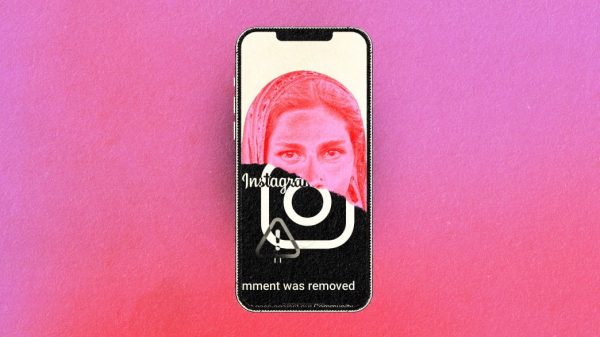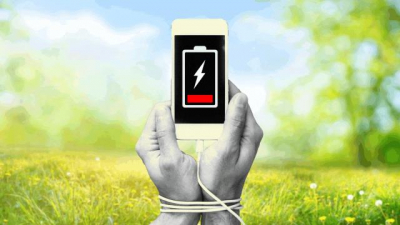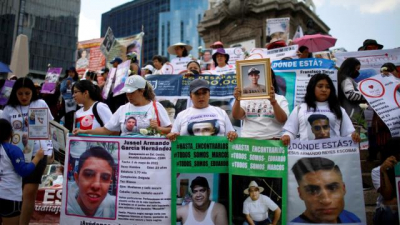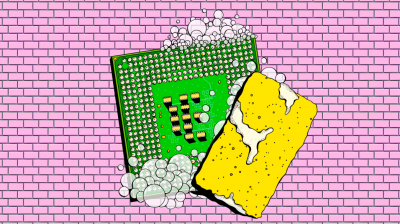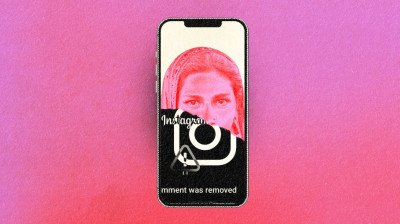Lost Voices: The Failure of Big Tech Platforms Like Instagram in Supporting LGBT Teens in India
Silenced Voices: The Tragic Toll of Cyberbullying on LGBT Teens in India
As cyberbullying and hate speech continue to spread like wildfire across social media platforms, queer individuals in India find themselves engulfed in a harrowing battle not just for their mental well-being, but for their very lives. The recent tragedy of Pranshu Yadav, a 16-year-old aspiring makeup artist from Madhya Pradesh, serves as a chilling reminder of the dangers lurking behind the facade of online connectivity.
Pranshu, inspired by American influencer James Charles, shared their passion for makeup artistry with over 16,000 followers on Instagram. However, in December 2023, Pranshu's promising future was abruptly cut short by the relentless onslaught of hateful comments and threats received on a post featuring them in a saree—a symbol of their self-expression and cultural identity.
Despite confiding in their mother, Preeti Yadav, about the daily barrage of abuse faced online, Pranshu concealed the true extent of their suffering, perhaps hoping to shield their loved ones from the pain. Preeti, still grappling with the shock of her child's untimely demise, struggles to comprehend how such cruelty could drive her beloved child to take their own life.
While the authorities have initiated an investigation into Pranshu's death, Preeti remains skeptical of the possibility of justice prevailing. The silence of Pranshu's friends, driven by fear and intimidation, further compounds the family's anguish, highlighting the pervasive climate of fear that stifles accountability.
In the digital age, social media platforms have served as both a lifeline and a battleground for India's queer community. However, the unchecked proliferation of cyberbullying and hate speech has transformed these virtual spaces into breeding grounds for discrimination and violence. Despite repeated calls for action, platforms like Instagram, owned by Meta, have yet to effectively address the systemic failures that endanger the lives of marginalized individuals.
As Pranshu's tragic story reverberates across the nation, it underscores the urgent need for tangible measures to combat online harassment and safeguard the mental well-being of LGBT youth. Only through collective action and unwavering advocacy can we hope to create a safer, more inclusive digital landscape for all.
The Silent Pandemic: Unveiling the Epidemic of Online Bullying Against India's LGBTQ+ Community
As the digital realm becomes increasingly intertwined with our daily lives, the specter of online bullying looms larger than ever for India's LGBTQ+ community. Jeet, the founder of the queer advocacy group Yes We Exist, sheds light on the alarming surge of cyberbullying, painting a grim picture of the virtual landscape marred by death threats, calls for genocide, and dehumanizing rhetoric.
The pervasive nature of online abuse is starkly evident on platforms like Instagram, where queer individuals are routinely subjected to a barrage of vitriolic comments, predominantly emanating from teenage boys and young men. Jeet's words serve as a chilling reminder of the pervasive influence wielded by these perpetrators, who may one day occupy positions of power in various sectors, further exacerbating the hostile work environment for queer individuals.
The tragic demise of Pranshu, who succumbed to the relentless onslaught of hate on Instagram, serves as a poignant example of the dire consequences of unchecked online harassment. Despite efforts to raise awareness, a 2023 social media safety index by GLAAD reveals a glaring failure on the part of major platforms like Facebook, Instagram, TikTok, YouTube, and Twitter to protect LGBTQ+ users from online hate speech.
While empirical data specific to India may be scarce, testimonies from activists like Daya Gayatri underscore the grim reality faced by queer individuals across the nation. Gayatri's petition in the high court of Kerala highlights the urgent need for legal intervention to curb the rampant dissemination of derogatory remarks targeting queer individuals on social media platforms.
Tragically, the repercussions of online bullying extend far beyond mere psychological distress, often culminating in irreversible tragedies. Gayatri's somber account of losing over 10 transgender and queer friends to cyberbullying underscores the urgent need for systemic change.
In the wake of Pranshu's untimely death, the belated recognition of the role played by online bullying serves as a wake-up call for authorities and society at large. Only through concerted efforts to combat online harassment and foster a culture of empathy and respect can we hope to stem the tide of senseless loss and ensure a safer, more inclusive future for all members of the LGBTQ+ community in India.
Silenced Voices: The Tragic Consequences of Online Bullying Against Kerala's LGBTQ+ Community
In a heart-wrenching tale that underscores the perils of online harassment, the story of Praveen Nath, Kerala's pioneering trans man bodybuilder, and his wife, Rishana Aishu, unfolds as a stark reminder of the destructive power of cyberbullying. Their love story, initially celebrated, quickly turned into a nightmare of relentless abuse and condemnation in the unforgiving realm of social media.
Praveen and Rishana, buoyed by their union, found themselves thrust into a maelstrom of hate comments, abusive calls, and online harassment after their marriage, a joyous occasion marred by societal prejudice. The couple's decision to part ways only served to intensify the vitriol, with WhatsApp groups becoming breeding grounds for threats and vilification aimed at shaming them for their openness about their relationship.
Daya Gayatri, a stalwart in the fight for LGBTQ+ rights, recounts her own ordeal of being targeted by hate comments, signaling a disturbing trend of organized campaigns aimed at erasing queer individuals from public discourse. Despite her efforts to address gender sensitivity through educational videos, the authorities' apathy towards combating online hate speech remains a glaring failure.
Tragically, the toll of online bullying extends beyond mere words, with suicides among queer individuals grappling with mental health challenges serving as a grim testament to the dire consequences of unchecked harassment. Youth Enrichment Society Kerala (YES Kerala), accused of spreading misinformation and fostering intolerance towards the LGBTQ+ community, perpetuates this cycle of discrimination under the guise of so-called "awareness programs.
Fayaz Ahmad, secretary of YES Kerala, perpetuates harmful narratives by disseminating misinformation about gender reassignment surgery and fostering a climate of hostility towards queer individuals in educational institutions. This alarming trend underscores the urgent need for concerted action to dismantle the systemic barriers that perpetuate discrimination and intolerance against Kerala's LGBTQ+ community.
As Praveen Nath's tragic demise serves as a stark reminder of the human cost of online bullying, it is incumbent upon both authorities and society at large to stand in solidarity against hatred and bigotry, and to ensure that every individual, regardless of their sexual orientation or gender identity, is afforded the dignity and respect they deserve.
Unveiling the Web of Hate: The Perils Faced by India's LGBTQ+ Community in the Digital Age
The insidious spread of hate and misinformation targeting India's LGBTQ+ community has reached alarming proportions, as evidenced by the disturbing tactics employed by groups like YES Kerala and others. Fayaz Ahmad's chilling revelation of coerced gatherings and forced surgeries underscores the depths of manipulation and exploitation queer individuals endure at the hands of these malicious entities, all in the name of combating what they deem as "false information.
Despite Ahmad's denial of bullying, the group's derogatory portrayal of queerness as "wokeism" and references to the "rainbow mafia" betray a deep-seated animosity towards the LGBTQ+ community. Regrettably, YES Kerala is just one among many, with a slew of other groups like "Toxic Mallu," "Hytec Devam," and "Toxic Patriarchy" actively propagating hate and misinformation online, perpetuating a culture of fear and discrimination.
Anagh's assertion of entrenched queer-phobia within religious communities underscores the systemic barriers that queer individuals face, particularly in the wake of increased visibility and acceptance on social media platforms. The proliferation of fake accounts targeting the LGBTQ+ community only serves to exacerbate this hostility, posing a formidable challenge to the safety and well-being of vulnerable individuals.
In the face of this onslaught, social media companies must shoulder their responsibility in ensuring their platforms remain safe and inclusive spaces for queer individuals. Anagh's call to action for proactive measures against discrimination, harassment, and hate speech is both urgent and necessary to stem the tide of intolerance and bigotry.
Aarti Malhotra's poignant account of losing her son Arvey to suicide serves as a stark reminder of the human cost of online hate. Through her foundation, she transforms her grief into advocacy, determined to prevent others from suffering the same fate as her beloved son. Her unwavering resolve to speak out against injustice serves as a beacon of hope in the fight for a more compassionate and inclusive society.
As the digital landscape continues to evolve, it is imperative that we stand united against hate and intolerance, championing empathy, understanding, and acceptance for all members of India's LGBTQ+ community. Only through collective action can we hope to dismantle the web of hate that threatens to engulf us all.
In conclusion, the harrowing accounts of individuals like Praveen Nath, Rishana Aishu, and Arvey Malhotra underscore the urgent need for action to combat online hate and discrimination against India's LGBTQ+ community. From coerced surgeries to relentless harassment, the pervasive reach of hate groups like YES Kerala and their ilk represents a sobering reality that cannot be ignored.
As we navigate the complex terrain of social media, it is incumbent upon both individuals and institutions to stand in solidarity against intolerance and bigotry. Social media companies must take decisive steps to create safer and more inclusive spaces for queer individuals, actively combating discrimination and hate speech on their platforms.
But the responsibility doesn't rest solely on the shoulders of corporations. Each of us has a role to play in fostering a culture of empathy and understanding, challenging harmful stereotypes, and amplifying the voices of marginalized communities. Through collective action and unwavering advocacy, we can create a future where every individual, regardless of their sexual orientation or gender identity, is afforded the dignity and respect they deserve.
As we honor the memory of those who have been lost to the scourge of online hate, let us recommit ourselves to the pursuit of justice and equality for all. Together, we can dismantle the web of hate and build a brighter, more inclusive future for India's LGBTQ+ community and beyond.

